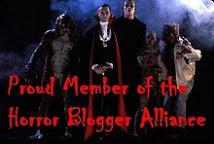Ryan O'Neal stars as the title character, which is exactly how his character is credited. He plays that brand of anti-hero/criminal who doesn't hurt good people that we've seen plenty of times in these kind of movies - the most obvious comparison for most modern viewers is to that flick Drive with Ryan Gosling - a guy who also doesn't ask for details and doesn't fall for a trap easily. He's more of a construct than a character, like the cowboy heroes of pulp westerns gone by, because he operates by a set of principles in everything he does.
The film is meticulous as it reminds us of the character's nameless purity, never stooping to self-referential lows like many modern action flicks do. You know how a Jason Statham character likes to spout off pre-rehearsed quips about his rules and what he never does? That's not The Driver's game. Sure, the idea branches off of what Hill's script established here (though this is in no way the first film to pull the detached control monger as hero card), but The Driver is notable because it doesn't allow the lead to preach his code of ethics to the viewer. O'Neal was apparently a big deal in the '70s, but I wasn't there and I don't really "get" his appeal as an actor. I'm tempted to say that the actor can be one of the film's biggest flaws during the moments that might suggest character development and require him to speak or emote, but at the same time the actor's skill for monotone and ability to hold a vapid expression while the character is in the middle of high risk situations is one of the film's greatest strengths. You could assume that the casting decision was made for this benefit, and that makes it feel like a slightly genius move by Hill and company.
While O'Neal's driver is kept to few words and fewer emotions, the film draws us in completely with the always enjoyable Bruce Dern as The Detective, the primary adversary to the driver. While dialogue is very limited for our criminal - in fact, a fantastic opening sequence runs over 15 minutes before he speaks - Dern's work as the cop is quite the opposite. He spouts out his knowledge - mostly from those kind of assumptions that cops always seem to get right in these movies - about the driver often, most effectively when the characters meet. Dern has always had that kind of sly angst mixed with his everyday appearance, and hearing him tell the driver things like "sad songs ain't sellin' this year" is more than enough to advance their feud through the film. Dern can do pissed-off but in control as well as anyone can, and it's safe to say that the film's conflict would go nowhere without his wonderful performance.
Of course, there always needs to be a girl in these situations, and Hill manages to put two of the most attention grabbing female performers of the era into the mix here. The stunning Isabelle Adjani, with her dark hair and eyes the size of Kansas, is what the credits refer to as The Player, while Ronee Blakely - known to most horror fans for her drunkenly fascinating performance in A Nightmare on Elm Street - is The Connection. Adjani gets plenty of screen time as the kind of yin to the driver's kind of yang, while Blakely's supporting turn is key to the film's final heist and leads to one of the film's most artistic and grabbing moments at the end of her final scene. These characters seem like they walked right out of a '50s film noir offering, and they team up with the rest of the bit players to give the film a poetic depth that pushes the film above simple car chases and cops-and-robbers cliches. Nothing here is groundbreaking or unique - the fact that all of the characters can be summed up by their role in the plot is not a joke, it's a truth - but there's a good chance the viewer will be impressed with how well the parts of the puzzle all fit together.
The Driver is one of Hill's most abstract and cinematic works, the kind of straightforward, no frills action film that only could have existed in the 1970s. It would make a fantastic double bill with John Carpenter's second film - the gang war epic Assault on Precinct 13, because both films seem like a case of a director showing off how much he can do with the simplest of ideas. Hill would rise to greater commercial success in the following years - The Warriors opened a year later, and he soon was behind the camera for bigger projects - but The Driver remains as a cool piece of the '70s that's worth revisiting. In cinema, less is often more, and The Driver reminds us of how true that statement can be.























